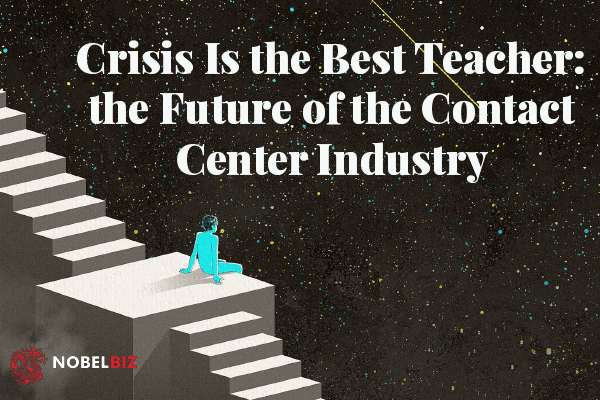Special times deserve special attention. 2020 proves to be a high-speed rollercoaster for most if not all industries. But what about the Contact Center niche? What has changed and where should we direct our common efforts? Well, because 2020 is coming to an end, we believe that we left the worst behind and we want to look into the future with optimism and hope.
The Domino Effect
It is no secret that the pandemic affected first and foremost the customer behavior and determined people across the globe to kick into the survival mode. In short, customers became more cautious and demanding when spending money. Switching from a logic of abundance to one of sufficiency created a tsunami of changes that swept across unexpected businesses across the globe.
And if this was not enough, businesses and clients alike had to survive yet another peculiarity of the 2020 pandemic: the lockdown. This created even more confusion as everybody had to adapt and do so overnight. Systems that were in place for years on end had to bend and mold to the new reality.
Of course, all these changes came with a very intoxicating dose of confusion that had to be dealt with. And can you guess who took on this herculean task? Well, yes, you`re right, customer service agents across the globe.
And they did so while trying to adapt on the fly to the new work-from-home model. This across-the-industry effort was so demanding it created a boom in the contact center job market, with an emphasis on the new remote work standard.

The Opportunity and the future of contact centers
As the saying goes, every crisis lays the ground for new opportunities. But what exactly are the opportunities, you might ask? Let`s elaborate more on this, starting from a quote from a very fresh and inspiring podcast:
The customer experience approach to a business in the past decades … has not been truly perfected. So in that regard, the opportunities it brings for change, for improvement societally and personally, are amazing and great for anyone at any given time. But business leaders have to understand that if they don’t get it, if they don’t understand dynamically what that means, if they don’t begin to offer management tools to it, they will become obsolete.
– Steve Bederman, CEO of NobelBiz – for the Customer Experience Superheroes Podcast
In short, the industry has been laid dormant for decades on end, driven by inertia alone, hypnotized by the business as a usual mantra. But lo and behold, here comes the 2020 crisis and the sleeping beauty meets the harsh reality of a hostile and demanding economic environment.
The Irony
The irony has it that every single technology for achieving an industry-wide quantum leap was at our fingertips for some time now.
When everybody was forced to work from home, contact centers worldwide discovered that options such as Cloud Routing or Omnichannel Platforms were essential for the new reality. But as you might probably know, these are by no means new technologies. Professionals sometimes experimented with them on a small scale, but never saw their true potential until the pandemic hit.
In other words, we needed a crisis in order to understand that with these sorts of capabilities things get much more efficient and simpler. Indeed, without the situation at hand we probably would have never known that improving is not an issue of resources, but an issue of breaking old habits and norms.
Ask not what your industry can do for you, but what you can do for your industry
Well, if there is one takeaway from all this is that we are entering an era where we can no longer afford to stay passive and ignorant of the resources at hand.
For one, contact center managers and owners have to constantly adopt, test, and implement emerging technologies. The customer services of the new normal are agile and responsive, flexible and reliable.
In turn, not only we would get better working results and revenues, but we would stay relevant as an industry when faced with new technologies that threaten to take out our business altogether. Of course, we are talking about the latest AI dilemma, a subject that is trending for some time now.
This is why we should lose the fears and unite in joint efforts to reinvent our working structures to stay relevant and deliver the best services worldwide.

Andrei is an experienced marketing professional specializing in propelling growth for both B2B and B2C companies. Proficient in streamlining marketing operations and enhancing lead and customer experiences through SEO and marketing techniques.






